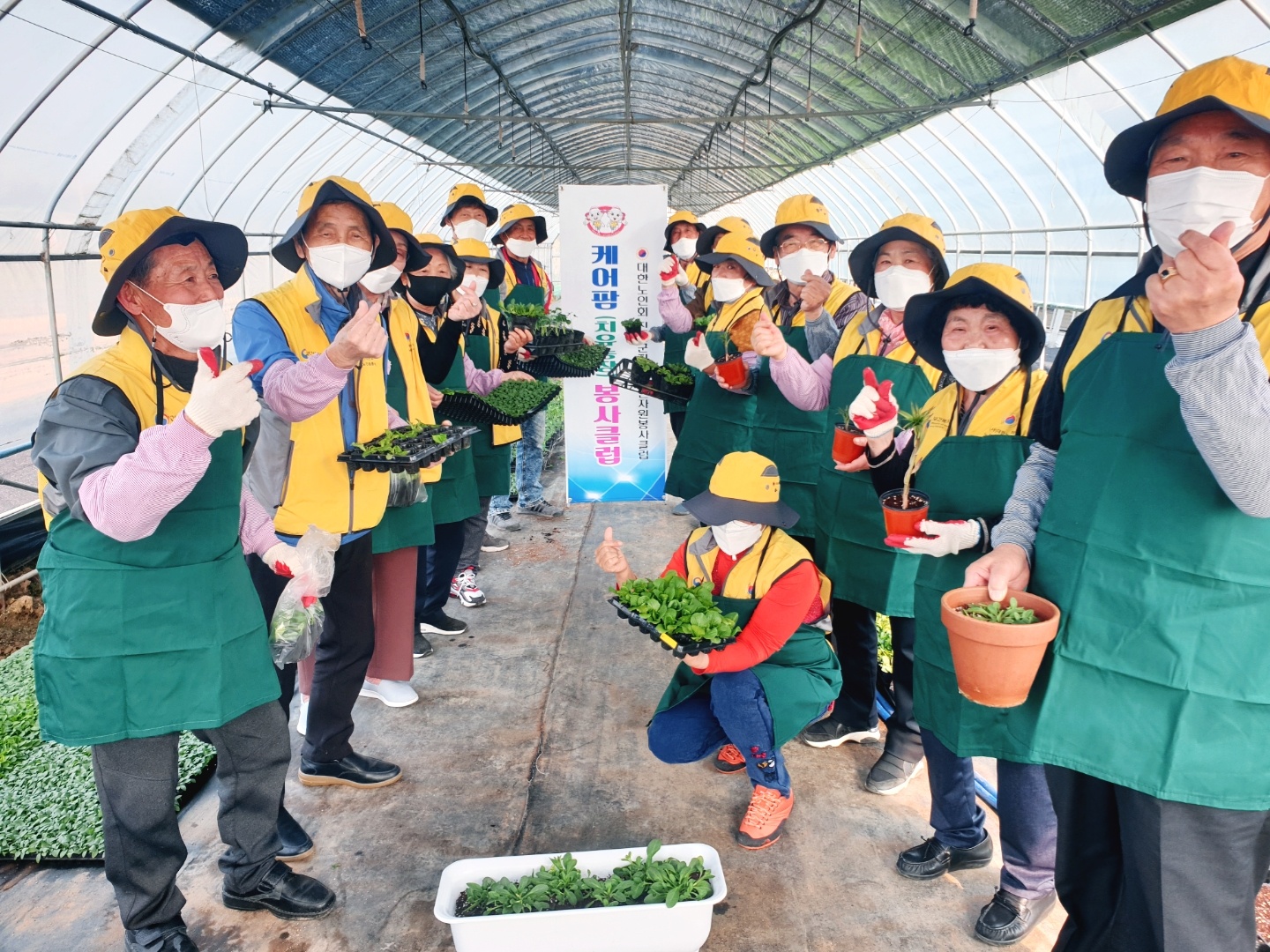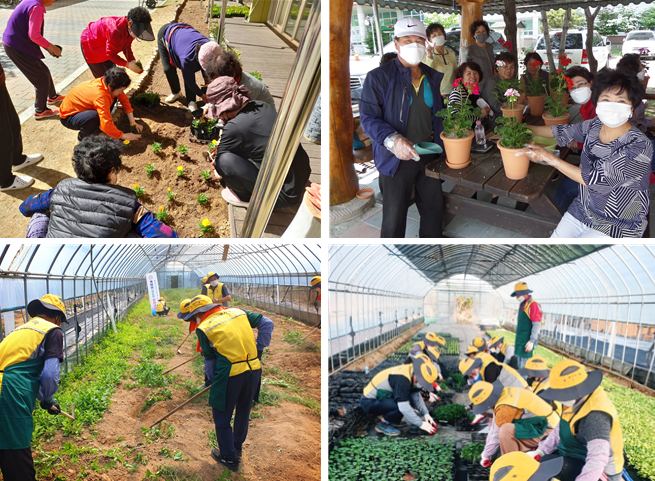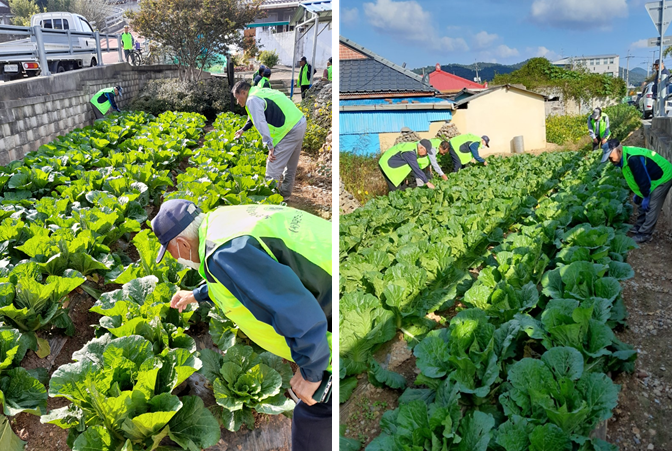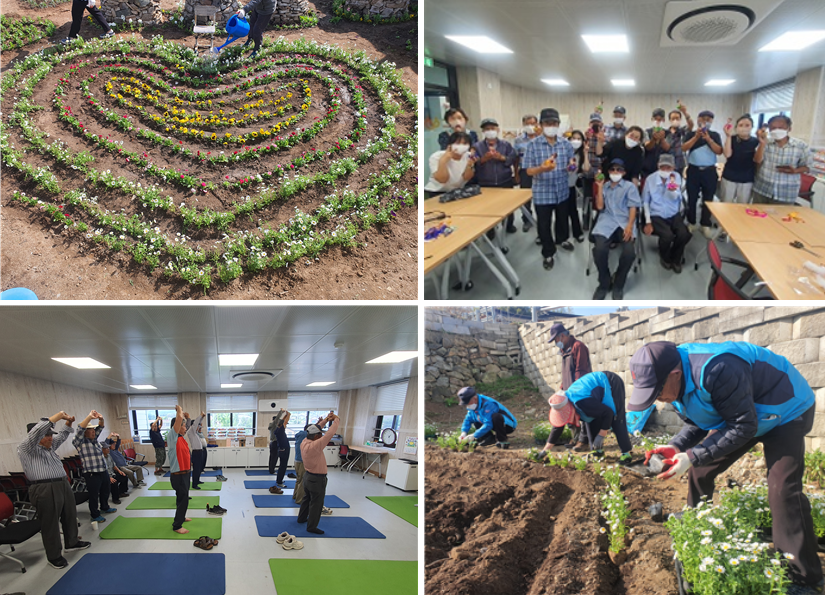Therapeutic Care Farming in South Korea
South Korea is undergoing a significant shift in its demographic composition. The ‘2023 Statistics on the Aged’ report from Statistics Korea indicates that the population of those aged 65 and above has reached approximately 9.5 million, which represents 18.4% of the nation’s total population. By 2024, this figure is expected to exceed 10 million, with forecasts for 2025 predicting that older persons will constitute over 20% of the population, marking the transition to a super-aged society. Moreover, evolving family dynamics have led to a rise in the number of older individuals living alone or with a spouse. As of 2022, single-person households make up 20% of the older population, indicating that one in every five is experiencing life in solitude.
The dramatic change in South Korea’s demographic structure is driving the need for policy revisions concerning the care of vulnerable groups within the ageing population, including individuals living alone and those with dementia. In response, it is becoming crucial to enhance the roles of both government and society. There is a pressing need to expand sustainable financial plans for eldercare, and to enhance integrated care systems and services to promote intergenerational solidarity. Particularly noteworthy is the ‘Care Farm’ project, a community-led policy initiative that has been gaining traction. This project focuses on enabling older individuals to lead healthy lives while continuing to stay in their own homes rather than moving to institutionalized care settings.
The ‘Care Farm’ is an innovative service model that integrates the concepts of caregiving and farming in order to enhance the well-being and independence of those in need of specialized care, such as individuals with dementia, intellectual disabilities, or developmental challenges. This form of therapeutic farming is being actively pursued in several European countries, including the Netherlands, Belgium, and France. Participants engage in a variety of farm activities, ranging from animal care to crop cultivation, and prepare meals together. The programs provide day-care services, and also vocational training, offering participants the chance to participate in productive endeavors like processing, packaging, and selling farm products.
The essence of Care Farm activities lies not in the efficiency of participants’ labor, but in fostering a supportive and protective environment, with the ultimate goal of promoting de-institutionalization. This report note spotlights two initiatives in South Korea: the ‘Saenggeojincheon Care Farm’ in Jincheon County, and the ‘Healing and Nurturing Mini Care Farm’ in Naju City.
□ Jincheon County's 'Saenggeojincheon Care Farm'

As of 2023, individuals aged 65 and over make up 18.3% of Jincheon County's population. This trend toward an ageing demographic is particularly pronounced in Chopyeong-myeon, Moonbaek-myeon, Baekgok-myeon, and Iwol-myeon, where the older population ranges between 33.2% and 47.7%. In these areas, the challenges of ageing are compounded by an increase in age-related health issues like dementia and stroke. The rural setting of these regions, along with limited public transportation, significantly hinder older residents’ access to vital welfare services.
In response to these challenges, Jincheon County launched the ‘Saenggeojincheon Care Farm’ project in 2020. This pioneering model, which draws deeply on village community life, offers therapeutic farming programs to residents in need, including older individuals. Activities like gardening and animal care are often run in partnership with mental health wellness centers, and enhance participants' quality of life by integrating them into meaningful work.

The Saenggeojincheon Care Farm project deploys customized welfare programs that are designed to meet the specific needs of the local community and the project’s beneficiaries. A 2020 survey in Jincheon County revealed that 41.7% of older residents cited economic issues as a major concern. In an effort to address this, the county has been rolling out more sophisticated welfare programs since 2023. The Care Farm initiative integrates with the social service system, offering a lifeline to 20 older individuals involved in Care Farm activities who receive essential care and emotional support. A further 10 unemployed older people benefit from the services and programs offered at Jinchon’s Mini Care Farm. Expanding its reach, the project operates Care Farms in underutilized areas in community centers across 34 villages, assisting about 590 mobility-challenged older residents. These village-level Care Farms, now vibrant with activity, host biannual visits from horticultural experts who assist the participants in managing vegetable gardens and caring for plants, enriching their lives, participants say, with meaningful activities.
The Care Farm project offers a nurturing environment for older individuals living in rural areas, who receive physical, mental, and psychological support in familiar surroundings. From the perspective of older persons’ rights, the Saenggeojincheon Care Farm initiative in Jincheon is significant. It not only overcomes the constraints of the rural setting to deliver effective care, but also empowers older people to feel a sense of self-efficacy. This empowerment helps them spend their later years in good health, both physically and mentally, in the comfort of their own community.
□ Naju City’s ‘Healing and Rejuvenating Mini Care Farm’

As of August 2023, individuals aged 60 and above constitute 32.3% of Naju City's population, signifying a rapid transition into a super-aged society. Alongside this demographic shift is a notable rise in health concerns, particularly among older individuals with dementia. In 2019, there were 1,919 dementia patients in Naju City; by 2022, this number had more than doubled, to 3,667. In response, the city launched the 'Healing and Rejuvenating Mini Care Farm' project in 2021. This initiative combines agricultural activities with dementia care services to create an integrated system aimed at preventing dementia and promoting healthy ageing.
Participating in gardening activities such as vegetable planting, weeding, fertilizing, and managing flower beds clearly brings new energy into older people’s daily routines. Furthermore, the harvest is shared with other vulnerable members of the community, like fellow dementia patients or older individuals living alone, thereby strengthening community bonds. A highlight of the project is the annual 'Sharing Kimchi with Love' event, where participants make large quantities of kimchi from their harvested produce, enhancing community interaction and empathy. These group activities enable older persons to engage in productive labor and beneficial physical exercise, leading to improved emotional well-being and cognitive function.

The 'Healing and Rejuvenating Mini Care Farm' in Naju City has so far significantly improved quality of life for the older persons with dementia who participate, revitalizing their day-to-day activities and ensuring sustained care. The Care Farm enhances physical health and bolsters social connections, providing a positive emotional impact.
The Korean Care Farm model transforms the traditional approach to caring for an ageing population. It supports a high quality of life for older persons and offers valuable insights for global communities facing similar demographic challenges. This model proposes a new paradigm for a sustainable social structure, providing benefits that enhance health and well-being, strengthen community ties, and encourage economic self-reliance among older individuals.
Haeri Kang (haerikang@asemgac.org)